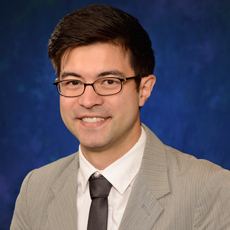
The new documentary “Advanced Style” provides inspiring examples of vibrant aging, sharing the stories of older women — some nearing 100 — who continue to push the boundaries of fashion. But I was surprised to find that it also offers a glimpse of a senior care landscape in which older adults increasingly encounter the healthcare system through rehabilitation and home- and community-based services.
Ari Seth Cohen is the mastermind behind the Advanced Style project. It began life as a blog, featuring Cohen’s street photography of fashionable older New Yorkers. The blog’s popularity propelled some of these seniors into the public eye, garnering them modeling gigs and other media exposure, and spurring a 2012 book and the Lina Plioplyte-directed documentary that was released this year.
The doc, which was filmed over the course of three years, begins by introducing the main characters — a handful of the most iconic Advanced Style fashionistas. One is Ilona Royce Smithkin, a 94-year-old artist and teacher who drew the portrait of Ayn Rand that appeared on the author’s original book jackets. There’s 81-year-old Lynn Dell Cohen, owner of the Off Broadway boutique, and relative youngster Debra Rapoport, 68, an artist who can create high fashion out of humble ingredients such as toilet paper rolls. Another luminary is 83-year-old Jacquie “Tajah” Murdock, one of the original dancers at the Apollo Theater.
As these women appeared onscreen in entertaining vignettes, I began to think that the whole documentary might essentially be a filmed version of a coffee-table book. It might offer highly polished but not very complex portraits of these women, sharing their ideas about how to look great and feel terrific through the judicious selection of shoes. However, the second part of the film goes deeper.
We see these women achieve remarkable successes thanks to Cohen’s blog and book. Murdock is selected to model for the prestigious fashion house Lanvin Paris; Rapoport becomes a star of Kmart’s “Money Can’t Buy Style” campaign. Smithkin is offered a gig hosting a Discovery Channel TV show. Rapoport, Dell Cohen and fellow Advanced Style regular Joyce Carpati appear on the Ricki Lake show.
But the documentary also delves into the challenges these women face as they get older. Dell Cohen nearly dies due to burst gallstones, and the incident sends her to post-acute rehab at Jewish Home Lifecare in Manhattan. She truly is a larger than life personality. (She actually was asked to tone it down for Ricki Lake). It took seeing her laid up in a rehab facility to remind me of her age, and it drove home the trends shaping post-acute care. Patients like Dell Cohen go from full-throttle lives to six-week hospital stays and post-acute rehab in the blink of an eye, and they desire and expect to regain their former level of functioning if it’s at all possible, as well they should.
Part of the implicit premise of “Advanced Style” is that there could be — and perhaps inevitably will be — more people like Dell Cohen in the near future: People who are 80 or older and are not slowing down, and who might even be experiencing some of the most active years of their lives. The government is considering a new payment measure that the American Health Care Association/National Center for Assisted Living believes might limit post-acute care for certain patients who want and can handle the most robust post-acute therapy; it is just one of many steps that regulators and lawmakers are pursuing to clamp down on therapy providers, which historically have had problems with upcoding and other practices some find shady. Dell Cohen’s story puts a human face on how important it is that the government doesn’t throw out the baby with the bathwater in these efforts, and that a reformed system still would incentivize aggressive rehab when it’s appropriate.
The government also increasingly is pushing home- and community-based care. I recently wrote about the need to account for how these policies put pressure on “next friends,” who have to sacrifice time and sometimes income to care for loved ones, according to a UCLA researcher. “Advanced Style” underscores the extent to which these next friends are themselves older adults; the documentary explores how the fashionable older women are supporting spouses and friends who are dealing with blindness, cognitive issues and other conditions. Dell Cohen and her Advanced Style peers are the faces of HCBS caregivers — and they are faces that are more aged than many people might associate with this type of care. I think this should give pause to policymakers who may be envisioning spry workers or able-bodied children filling most HCBS caregiver roles.
However, the film captures the complexity of caregiving, and is as much a testament to the value of HCBS as a cautionary tale about its difficulties. Smithkin and Dell Cohen — whose husband is nearly blind — both comment on how caring for a loved one motivates them to maintain their own health, and they imply that it gives them a sense of purpose.
The film is at its most poignant in showing Smithkin — 91 at the time of filming — caring for a long-time friend who now has dementia. Smithkin says her friend, Karen, now is in “another world,” but the two still can communicate, most remarkably through song. Smithkin turns to Karen at one point and sings, “You make me feel so young.” Without missing a beat, Karen responds, “I make you feel like spring has sprung?”
“Cause you make me feel so young,” the two then sing in unison.
It’s one of the most uplifting moments in the documentary, which is not short on inspiring scenes. But just like the women it profiles, the film is not too sentimental, and it leaves you with a lot to think about — not least of which is how our healthcare system should advance to support aging with style.
Tim Mullaney is McKnight’s Senior Staff Writer. Follow him @TimMullaneyLTC.




